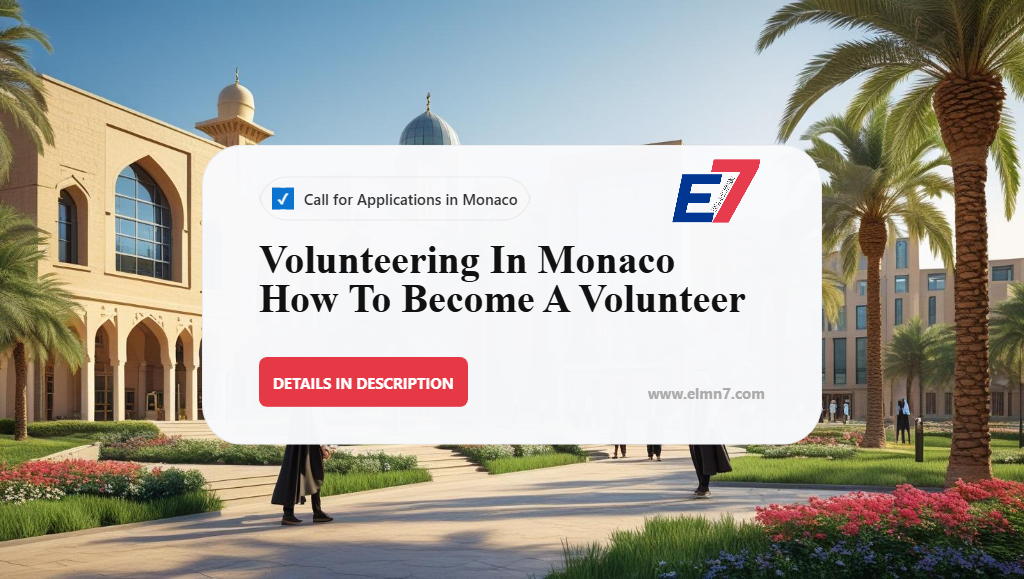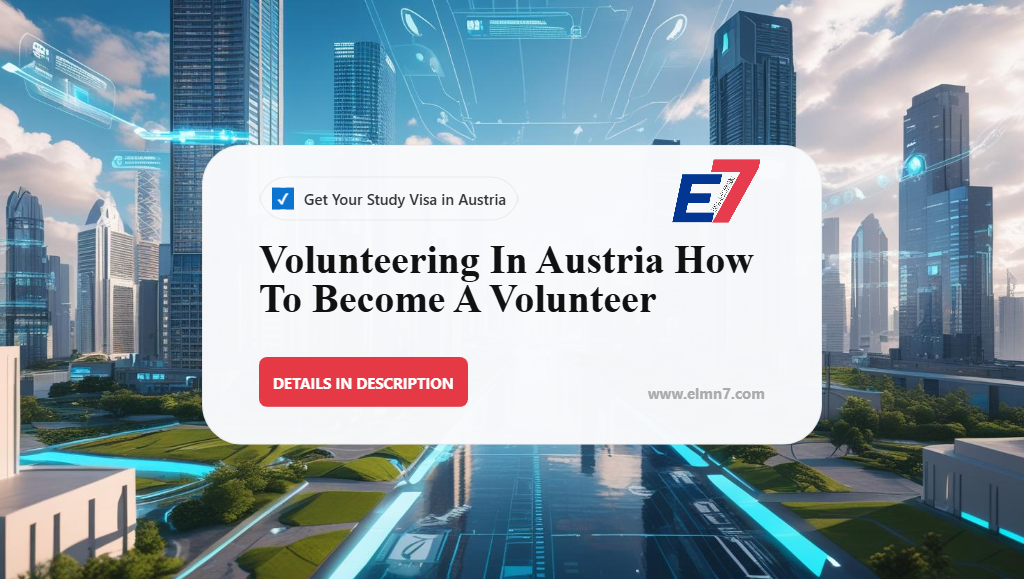يُتيح قطاع المجتمع المدني النابض بالحياة في ألمانيا آلاف الفرص سنويًا لإحداث فرق حقيقي، سواءً كنتَ تُساعد اللاجئين على الاستقرار في برلين، أو تُحمي الأراضي الرطبة في جبال الألب، أو تُدرّب الأطفال في نادٍ رياضي محلي. فإلى جانب الشعور بالسعادة، يُتيح التطوع هنا فرصةً للانغماس الثقافي العميق، وممارسة اللغة القيّمة، وفتح آفاق جديدة أمامك في شبكات مهنية متينة في ألمانيا.
اقرأ أيضاً: التطوع في البحرين | كيف تصبح متطوعًا؟
1 لماذا التطوع في ألمانيا؟
التطوع في ألمانيا أكثر من مجرد مساعدة؛ إنه جسرٌ يربط بين مجتمعات أوروبا الأكثر تقدمًا. تستضيف البلاد مجموعةً واسعةً من المبادرات الإنسانية والبيئية والثقافية، يدعمها 31 مليون متطوع، أي ما يقارب 40% من السكان. من أهم دوافعهم:
اقرأ أيضاً: التطوع في كندا | كيف تصبح متطوعًا؟
- التأثير الاجتماعي: بدءًا من معالجة تغير المناخ في الغابة السوداء وحتى الدفاع عن العدالة الاجتماعية في المراكز الحضرية، تقف المنظمات غير الربحية الألمانية في الخطوط الأمامية للتحديات الأكثر إلحاحًا في أوروبا.
- بناء المهارات: يكتسب المتطوعون خبرة عملية في إدارة المشاريع، والتواصل بين الثقافات، وجمع التبرعات، وإتقان اللغة الألمانية – وهي الأصول التي يتطلع إليها أصحاب العمل.
- بوابات التوظيف: غالبًا ما تترجم البرامج مثل الخدمة التطوعية الفيدرالية (BFD) أو السنة الاجتماعية التطوعية (FSJ) إلى مراجع أو فرص للتواصل أو حتى أدوار مدفوعة الأجر داخل نفس المنظمة.
- النمو الشخصي: إن العيش في سياق ثقافي جديد يعزز القدرة على التكيف والتعاطف والصداقات مدى الحياة.
سواء كنت خريجًا حديثًا، أو محترفًا في منتصف مسيرته المهنية في إجازة، أو متقاعدًا يبحث عن السفر الهادف، فإن المشهد التطوعي في ألمانيا لديه مكان لك.
اقرأ أيضاً: التطوع في النمسا | كيف تصبح متطوعًا؟
2 فهم المشهد التطوعي الألماني
تُميّز ألمانيا بين برامج الخدمة الرسمية (القائمة على عقود، وعادةً ما تكون بدوام كامل، برواتب متواضعة) والتطوع التقليدي (المرن، وغير مدفوع الأجر، وغالبًا ما يكون بدوام جزئي). وتشمل الركائز الأساسية ما يلي:
اقرأ أيضاً: التطوع في بلجيكا | كيف تصبح متطوعًا؟
| قطاع | المنظمات المضيفة النموذجية | الأدوار المشتركة |
|---|---|---|
| اجتماعي | كاريتاس، دياكوني، مكاتب رعاية الشباب المحلية | رعاية المسنين وتوجيه الشباب |
| بيئي | NABU، BUND، WWF، محميات المحيط الحيوي التابعة لليونسكو | استعادة الموائل والجولات التعليمية |
| ثقافي/فنون | المتاحف والمسارح والمهرجانات الموسيقية | لوجستيات الحدث، الأرشفة، خدمات الزوار |
| إنساني | الصليب الأحمر الألماني، المنظمات غير الحكومية الداعمة للاجئين | دروس اللغة، مساعدة التكامل |
| الرياضة والترفيه | الأندية الرياضية المحلية، الأولمبياد الخاص | التدريب وتنظيم البطولات |
تتراوح مدة معظم التعيينات بدوام كامل بين 6 و18 شهرًا ، بينما قد لا تتجاوز مدة التطوع المؤقت مهمة تنظيف واحدة بعد الظهر. توقع دقة إدارية ألمانية: الاتفاقيات المكتوبة، وتأمين المسؤولية، والتقييمات الدورية هي المعيار.
اقرأ أيضاً: التطوع في البرازيل | كيف تصبح متطوعًا؟
3 المتطلبات القانونية واعتبارات التأشيرة
المواطنون في الاتحاد الأوروبي/المنطقة الاقتصادية الأوروبية/سويسرا: لا يلزم الحصول على تصريح خاص؛ يمكنك التطوع على الفور ولكن يجب عليك تسجيل عنوانك (Anmeldung) في غضون 14 يومًا من الوصول.
اقرأ أيضاً: التطوع في كولومبيا | كيف تصبح متطوعًا؟
المواطنون من خارج الاتحاد الأوروبي:
اقرأ أيضاً: التطوع في فنلندا | كيف تصبح متطوعًا؟
- نوع التأشيرة: قدّم طلبًا للحصول على تأشيرة D “خدمة تطوعية” أو “مربية أطفال/سنة اجتماعية تطوعية”. أرفق اتفاقية المؤسسة المضيفة الموقعة.
- المدة وساعات العمل: تصل إلى 12 شهرًا (في بعض الأحيان يتم تمديدها إلى 18 شهرًا) بحد أقصى 40 ساعة / أسبوعًا للبرامج بدوام كامل.
- التأمين الصحي: إلزامي؛ ويغطي العديد من المضيفين التأمين، وإلا فإن الميزانية تتراوح بين 100 إلى 120 يورو شهريًا.
- إثبات الأموال: إذا كان الراتب أقل من 963 يورو شهريًا (عتبة المعيشة لعام 2025)، فقد تحتاج إلى ضمانات مالية إضافية.
نصيحة: قم بالتقديم قبل 12 أسبوعًا على الأقل من تاريخ البدء المقصود؛ حيث تقوم القنصليات الألمانية بمعالجة تأشيرات التطوع بشكل أسرع من تأشيرات العمل ولكنها لا تزال تتطلب البيانات الحيوية وأصول جميع العقود.
اقرأ أيضاً: التطوع في فرنسا | كيف تصبح متطوعًا؟
4 برامج تطوعية مشهورة (FSJ، BFD، FÖJ، ESC)
| برنامج | الفئة العمرية | ركز | الراتب الشهري* | أبرز الأحداث |
|---|---|---|---|---|
| السنة الاجتماعية التطوعية (FSJ) | 16–26 | المؤسسات الاجتماعية/التعليمية | 350–450 يورو | تتضمن 25 يومًا من الندوات حول علم أصول التدريس والمهارات بين الثقافات |
| السنة البيئية التطوعية (FÖJ) | 16–26 | الحفاظ على البيئة | 350–450 يورو | العمل في المتنزهات الوطنية أو المزارع العضوية أو المختبرات |
| الخدمة التطوعية الفيدرالية (BFD) | 18+ (لا يوجد حد أقصى) | الاجتماعية والثقافية والبيئية | 420–550 يورو | مفتوح لكبار السن، ومغيري المسار المهني؛ فترات مرنة من 6 إلى 18 شهرًا |
| فيلق التضامن الأوروبي (ESC) | 18–30 | مشاريع التضامن في جميع أنحاء الاتحاد الأوروبي | بدل + سفر + تأمين | مشاريع تصل مدتها إلى 12 شهرًا؛ بدون رسوم مشاركة |
*تختلف المنح الدراسية باختلاف الولاية (البوندسلاند) والدولة المضيفة، ولكنها تغطي تكاليف المعيشة الأساسية، وغالبًا ما تشمل وجبات أو سكنًا مجانيًا. تشمل جميع البرامج تأمينًا ضد الحوادث والمسؤولية، بالإضافة إلى 24 يوم إجازة على الأقل سنويًا.
اقرأ أيضاً: التطوع في اليونان | كيف تصبح متطوعًا؟
5. إيجاد الفرصة المناسبة: المنصات والمنظمات
- vostel.de – بوابة صديقة للغة الإنجليزية تحتوي على أكثر من 1700 إعلان، والعديد من المشاريع الحضرية قصيرة الأجل.
- freiwillige-jobs.de – قم بالتصفية حسب الولاية والقطاع ومستوى المنحة.
- Weltwärts – منصة اتحادية لخدمة التطوع التنموي (معظمها خارجية، ولكن بعض المواقع الواردة).
- عالم التطوع – فرص دولية مختارة؛ تحقق مما إذا كان المضيف مسجلاً كمنظمة غير ربحية ألمانية (eV) للتأهل للحصول على تأشيرات.
- الاتصالات المباشرة: لا تتردد في إرسال رسائل البريد الإلكتروني إلى المنظمات غير الحكومية التي لا تعلن حاليًا؛ حيث تُظهر الطلبات المقدمة ذاتيًا المبادرة وغالبًا ما تكشف عن أدوار خفية.
قائمة التحقق لتقييم المضيفين
اقرأ أيضاً: التطوع في إندونيسيا | كيف تصبح متطوعًا؟
- وصف واضح للدور والجدول الأسبوعي
- شروط مالية شفافة (الراتب، السكن، تذاكر النقل)
- مرشد أو مشرف مخصص
- اتفاقية مكتوبة باللغة الألمانية أو ثنائية اللغة
- تغطية التأمين على المسؤولية والحوادث
6 عملية التقديم: دليل خطوة بخطوة
- التقييم الذاتي: حدد أهدافك والوقت المتاح ومستوى اللغة والمنطقة المفضلة لديك.
- حضّر سيرة ذاتية باللغة الألمانية (Lebenslauf): صفحة واحدة، مرتبة زمنيًا عكسيًا، مع صورة شخصية. اذكر الخبرة التطوعية، ومهارات اللغة (وفقًا لمقياس الإطار الأوروبي المرجعي العام للغات)، والاهتمامات.
- قم بإعداد خطاب تحفيزي (صفحة واحدة): اشرح لماذا يتردد صدى القضية معك، وما هي المهارات التي تمتلكها، وكيف تخطط للنمو.
- جمع المراجع: أصحاب العمل السابقين، أو الأساتذة، أو قادة المجتمع؛ على الأقل واحد باللغة الإنجليزية / الألمانية.
- المقابلة: عادة ما تكون مكالمة فيديو؛ توقع أسئلة سيناريو حول العمل الجماعي والحساسية الثقافية.
- تلقي عرض التوظيف: مراجعة العقد، وتوضيح الراتب، وساعات العمل، وأيام الإجازة.
- مستندات التأشيرة والتأمين: يصدر مضيفك “Einsatzstellenvereinbarung” (اتفاقية الخدمة) لتقديمها إلى القنصلية.
- البحث عن مكان إقامة: اسأل عن بيوت الشباب، أو WG-Zimmer (شقق مشتركة)، أو السكن في الموقع.
- ندوة ما قبل المغادرة (اختياري): تقدمها العديد من المنظمات الشاملة لتغطية التكيف الثقافي والحقوق القانونية.
- الوصول والتوجيه: التسجيل في مكتب البلدية المحلي، وفتح حساب مصرفي ألماني، وحضور أسبوع التوجيه.
7 الاستعداد للتدريب: اللغة والثقافة والخدمات اللوجستية
- أساسيات اللغة الألمانية مهمة: بينما يتحدث العديد من الألمان الإنجليزية، إلا أن الحياة اليومية – البيروقراطية، وعلامات السوبر ماركت، وإعلانات الحافلات – تجري بالألمانية. استهدف مستوى A2-B1 ؛ دورات مجانية عبر الإنترنت (مثل “نيكوس ويج” من DW) أو دورات مسائية في مدرسة فولكسشوشول بأسعار مناسبة.
- الإشارات الثقافية: الالتزام بالمواعيد (الوصول قبل 5 دقائق من الموعد)، والتواصل المباشر والمهذب، وفصل القمامة في خمسة صناديق، كلها أمور تؤخذ على محمل الجد.
- تكلفة المعيشة:
- الإيجار: 350-600 يورو للغرفة في شقة مشتركة، وأكثر في ميونيخ/هامبورغ.
- البقالة: 200-300 يورو/الشهر.
- التأمين الصحي: يغطيه المضيف عادة.
- النقل العام: تغطي تذكرة Deutschlandticket الشهرية (49 يورو) معظم القطارات الإقليمية والترام والحافلات – وهو ما يوفر وفورات ضخمة للمتطوعين.
- تطبيقات مفيدة: DB Navigator (القطارات)، Too Good To Go (إنقاذ الطعام)، Nebenan.de (المجموعات المجاورة).
قم بحزم أمتعتك بذكاء: سترة واقية من المطر، ومحول قابس الاتحاد الأوروبي، ونسخ رسمية من مستنداتك، وصور بيومترية متعددة لبطاقات الهوية.
اقرأ أيضاً: التطوع في ماليزيا | كيف تصبح متطوعًا؟
8 حقوق ومسؤوليات وفوائد للمتطوعين
حقوق
اقرأ أيضاً: التطوع في أستراليا | كيف تصبح متطوعًا؟
- عقد مكتوب ووصف وظيفي واضح
- الوصول إلى الإرشاد وما لا يقل عن 25 يومًا من الندوات/التدريب للبرامج بدوام كامل
- 24 يوم إجازة مدفوعة الأجر كل 12 شهرًا
- مساهمات الضمان الاجتماعي (تتراكم نقاط المعاش التقاعدي!)
- شهادة إتمام الخدمة (Zeugnis)، ذات قيمة كبيرة للوظائف والتأشيرات المستقبلية
المسؤوليات
اقرأ أيضاً: التطوع في بلغاريا | كيف تصبح متطوعًا؟
- الالتزام بالجدول الزمني المتفق عليه وقواعد السلوك
- إبلاغ حالات الغياب أو المشاكل الصحية على الفور
- المشاركة بنشاط في جلسات التدريب
- احترم قواعد السرية وحماية البيانات (DSGVO)
مزايا تتجاوز الراتب
اقرأ أيضاً: التطوع في تشيلي | كيف تصبح متطوعًا؟
- أسعار مخفضة للطلاب للمتاحف ووسائل النقل العام والنوادي الصحية
- نفقات التطوع المعفاة من الضرائب للمقيمين في ألمانيا
- الوصول إلى شبكات الخريجين مثل BFD-Friends أو ESC Alumni، مما يساعد في الحصول على وظائف ومزيد من الدراسات
9 الاندماج في المجتمع وإحداث التأثير
- تعلم اللغة في العمل: تحدث باللغة الألمانية مع زملائك أثناء فترات الراحة؛ فالأخطاء جزء من العملية.
- انضم إلى النوادي المحلية (Vereine): من الجوقات إلى تسلق الجبال، تفخر ألمانيا بوجود 600,000 جمعية مسجلة. رسوم العضوية منخفضة والعوائد الاجتماعية مرتفعة.
- تتبع تأثيرك: احتفظ بمذكرات تأملية، وجمع البيانات حول المستفيدين، وشارك قصص النجاح – وهو أمر مفيد لتقارير المنح ومقابلات العمل المستقبلية.
- ساهم بما يتجاوز دورك: استضف أمسية طبخ، أو نظّم حملة تنظيف، أو قدّم عرضًا عن ثقافة بلدك في المدارس المحلية. هذه المبادرات الصغيرة تُوسّع دائرتك الاجتماعية وتترك انطباعات دائمة.
- ابقَ فضوليًا واستباقيًا: يحترم الألمان المبادرة الذاتية؛ اقترح مشاريع صغيرة بدلاً من انتظار المهام.
10 خطوات تالية: تحويل التطوع إلى مهنة أو التزام طويل الأمد
هل انتهيت من تدريبك وترغب بالمزيد؟ فكّر في:
اقرأ أيضاً: التطوع في قبرص | كيف تصبح متطوعًا؟
- طوّر شغفك: ينتقل العديد من المتطوعين إلى وظائف مدفوعة الأجر كأخصائيين اجتماعيين، أو مُعلّمين بيئيين، أو منسقي مشاريع. استخدم شهادتك في طلبات التوظيف لإثبات خبرتك في العمل في ألمانيا.
- التعليم الإضافي: تقدم بطلب للحصول على برنامج جامعي (مجاني في الجامعات العامة) في العلوم الاجتماعية، أو الاستدامة، أو إدارة المنظمات غير الربحية؛ حيث تعمل سنة التطوع الخاصة بك على تعزيز ملف القبول الخاص بك.
- تأسيس جمعية: يسمح القانون الألماني لثلاثة أشخاص بتأسيس جمعية كهربائية؛ وغالبًا ما يطلق الخريجون مبادرات شعبية، بدءًا من دروس خصوصية للمهاجرين إلى الشركات الناشئة في مجال الاقتصاد الدائري.
- تأشيرات المشاركة المدنية: إذا كنت متطوعًا لمدة عام واحد على الأقل وحصلت على عقد مدفوع الأجر في القطاع غير الربحي، فيمكنك التبديل إلى تأشيرة عمل بموجب المادة 18b AufenthG.
- ابق على اتصال: تتيح لك لقاءات الخريجين ومجموعات LinkedIn والمؤتمرات السنوية لخريجي Bundesfreiwilligendienst الاطلاع على دعوات التمويل وفرص التعاون.
إن العمل التطوعي في ألمانيا نادرًا ما يكون مغامرة لمرة واحدة فقط، بل هو الفصل الأول من المشاركة المدنية المستدامة والنمو الوظيفي.
اقرأ أيضاً: التطوع في إستونيا | كيف تصبح متطوعًا؟
خاتمة
إن تكريس وقتك وموهبتك في ألمانيا وسيلة ملموسة للاندماج في النسيج الاجتماعي لأمة ديناميكية متعددة الثقافات.
بفهمك للإطار القانوني، واختيارك للبرنامج المناسب، واستيعابك للتفاصيل الثقافية اليومية، تُهيئ نفسك لرحلة مجزية تعود بالنفع على مجتمعك ونفسك.
انطلق، وابدأ قصة تطوعك في ألمانيا.
اقرأ أيضاً: التطوع في آيسلندا | كيف تصبح متطوعًا؟



